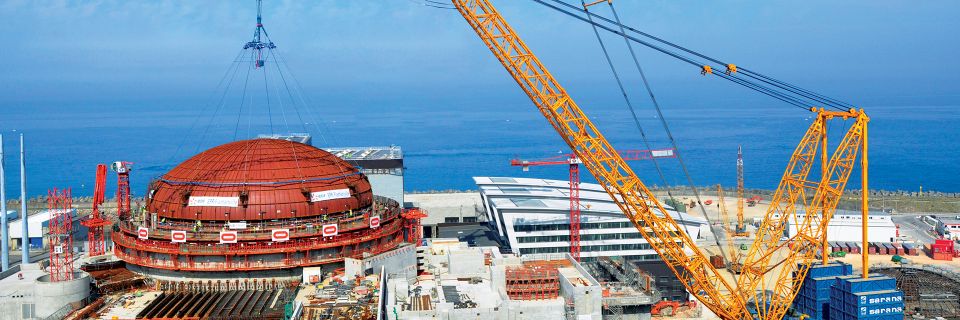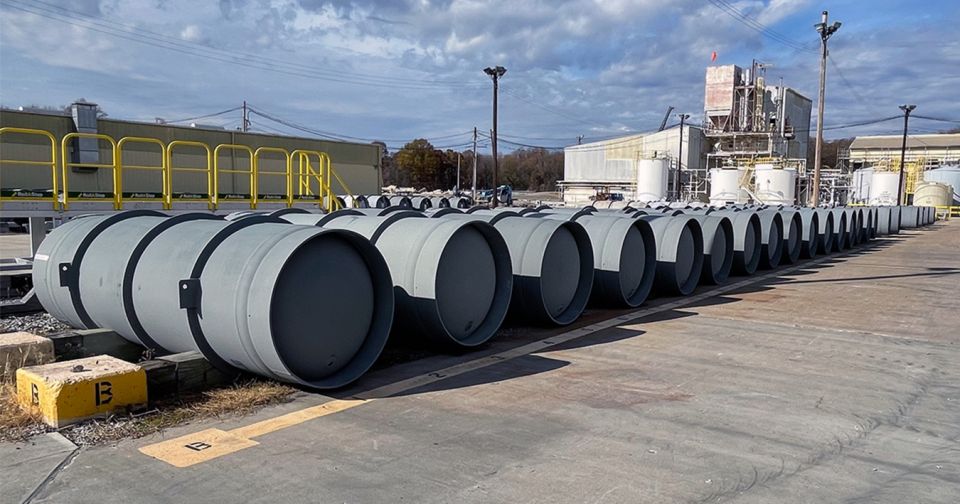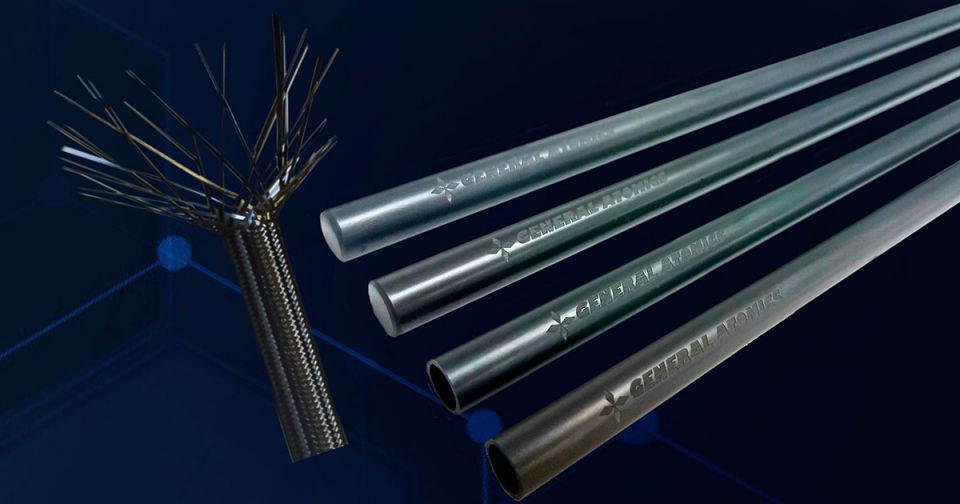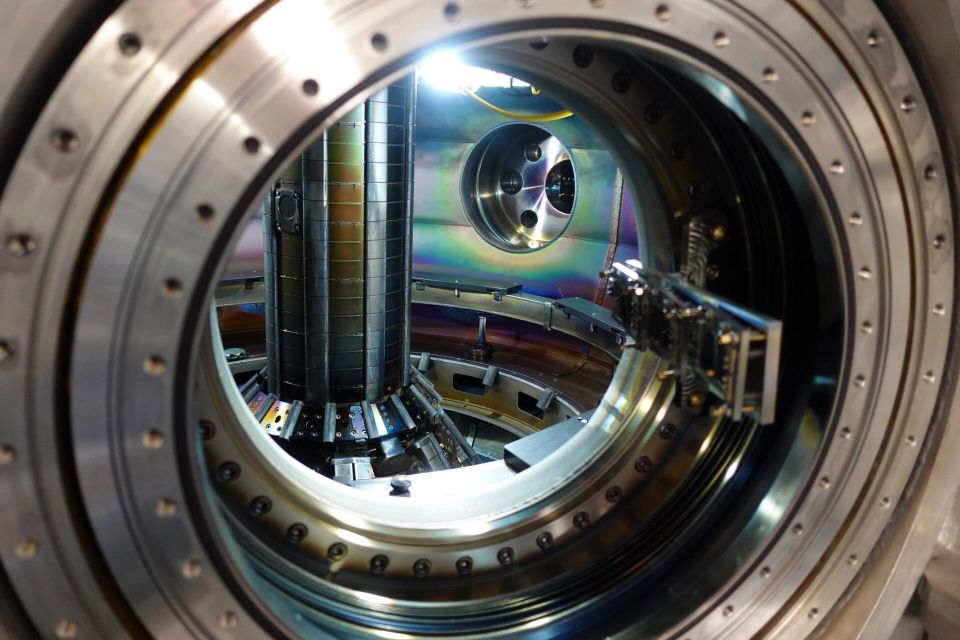DOE ready to consider Russian U ban waivers
Utilities need to know months ahead of a scheduled refueling outage that fresh fuel will be on-site and ready to load. Now that the Prohibiting Russian Uranium Imports Act has been signed into law, U.S. utilities with plans to use Russian-origin low-enriched uranium also need to know if they can secure a waiver for imports through December 31, 2027—subject to specific annual limits—if “no alternative viable source of [LEU] is available to sustain the continued operation of a nuclear reactor or a United States nuclear energy company” or if LEU imports from Russia are “in the national interest.”
The Department of Energy issued instructions and guidance for waiver requests in the May 24 Federal Register, concurrent with a notice from the Nuclear Regulatory Commission explaining how the ban affects imports under NRC licenses. The DOE’s instructions go some way to describing an “alternative viable source” of uranium and when granting a waiver might be “in the national interest.”
Viability: The new law does not define what constitutes an “alternative viable source,” but the DOE notes that “planning for a reactor refueling involves long lead times and a need for certainty concerning the availability of the fuel to support the refueling. Thus, an alternative source needs to be identified and secured many months prior to a scheduled refueling. This timing issue is necessarily a significant factor in determining whether an alternative source is available.”
Importantly, applicants cannot expect to be granted a waiver based solely on the price or other conditions of non-Russian LEU sources: “DOE does not interpret ‘viable’ to mean that the terms and conditions, including price, of an alternative source must be the same as the prohibited Russian import but rather that the terms and conditions must be reasonable in the context of overall market conditions.”
National interest: The instructions state that the DOE, Department of Commerce, and Department of State will consider waiver requests with a “presumption that an import will be in the national interest” if that import is “necessary to maintain the viability of a U.S. nuclear energy company that is critical to the U.S. nuclear energy fuel chain” or “the import is intended to support an existing arrangement to provide fuel for a nuclear power plant in another country and thus minimize the likelihood of that country seeking a non-U.S. fuel supplier.”
Further, the DOE “believes it is important to the national interest to keep existing elements of the domestic fuel chain infrastructure in operation and to focus on expanding domestic fuel chain capacity. DOE also believes it is important to the national interest to maintain supply relationships with end-users in other countries while additional LEU capacity is being developed. In addition, waiver applicants may identify other situations that they believe may be in the national interest for consideration by the Secretary of Energy.”
NRC weighs in: In its May 24 notice on the “Effect of Statutory Prohibition on Uranium Imports from the Russian Federation,” the NRC confirms that “Imports of low-enriched uranium and natural uranium under DOE waivers remain subject to all applicable NRC regulations, including the general import license in 10 CFR 110.27.”
It goes on to say that “after the statutory prohibition takes effect on August 11, 2024, the general license in 10 CFR 110.27 can no longer be used for imports that fall within the statutory prohibition, unless the importer obtains a waiver from the DOE. Additionally, specific licenses under 10 CFR Part 110 will not be available for imports that fall within the prohibition. If the NRC receives any applications for such specific licenses, including cases where the DOE has denied a waiver request or because waivers are no longer available, those applications will be returned by the NRC without action.”
Examples and instructions: The DOE provides four examples of situations “where a waiver would likely be appropriate”:
- The applicant is an end user with an existing contract for Russian LEU, and that LEU “will support a near-term refueling of a domestic nuclear power plant to prevent gaps or reductions in operation due to uncertainty about the availability of fuel when needed.”
- The applicant is a U.S. nuclear energy company with contracts to acquire Russian LEU and then supply it to a domestic end user to support a near-term refueling.
- The applicant is a U.S. nuclear energy company with contracts to acquire Russian LEU and supply it to an end user in another country prior to January 1, 2028.
- The applicant is a U.S. nuclear energy company that can demonstrate that “it is a critical part of the U.S. nuclear energy supply chain, and, in the absence of a waiver, it would not be able to stay in business.”
Any application for a waiver “based on a demonstration of no alternative viable source of LEU” should include “a detailed description of reasonable efforts made to obtain an alternative source of LEU, together with a detailed explanation of why the applicant was not able to obtain an alternative source of LEU available on reasonable terms and on the schedule needed to sustain the continued operation of a nuclear reactor or U.S. nuclear energy company.”
The DOE expects to take a minimum of 30 days to process waiver requests.
Applicants should submit their request to Chief of Staff, Office of Nuclear Energy, Department of Energy, 1000 Independence Avenue SW, Washington DC 20585; phone, 202/586-2240; email, uraniumwaiver@nuclear.energy.gov.







